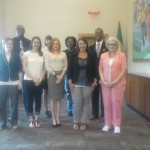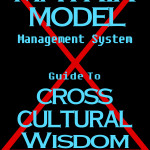(The Bermuda Jews History Series was originally published in The Bermudian Magazine)
I sat in a restaurant overlooking Hamilton harbor pondering my morning researching Bermuda Jews in the island’s Archives. I’d spent many hours reviewing Bermuda’s Jewish tourism prior to World War II. Yes, my family had mentioned ‘restricted’ places where no Jews were allowed. But mostly I remembered their stories of Bermuda’s war-time kindness to Jews. Dr. Hollis Hallett, the Archives founder, directed me to documents from the 1930s showing the impact of an increasingly global anti-Semitism on Bermuda tourism. What should I write about this ugly period?
Continue reading Bermuda Jews Part 3: The Jewish Question — by Deborah Levine


